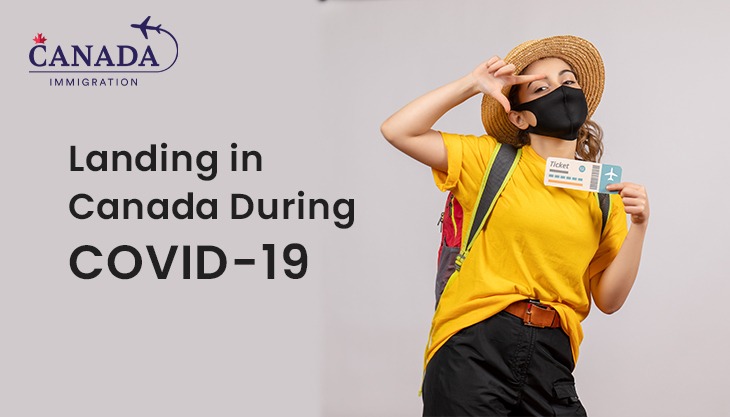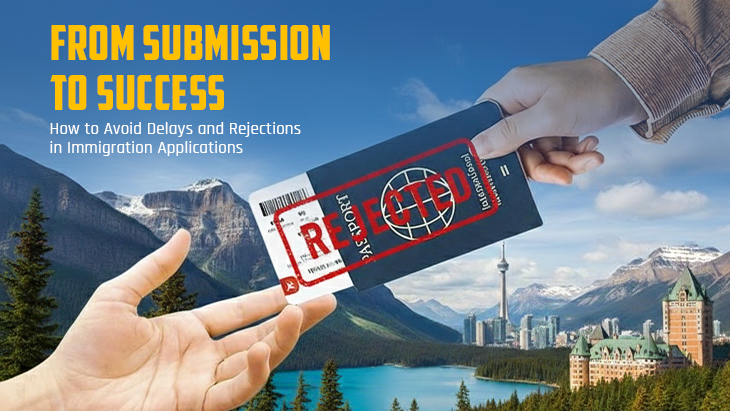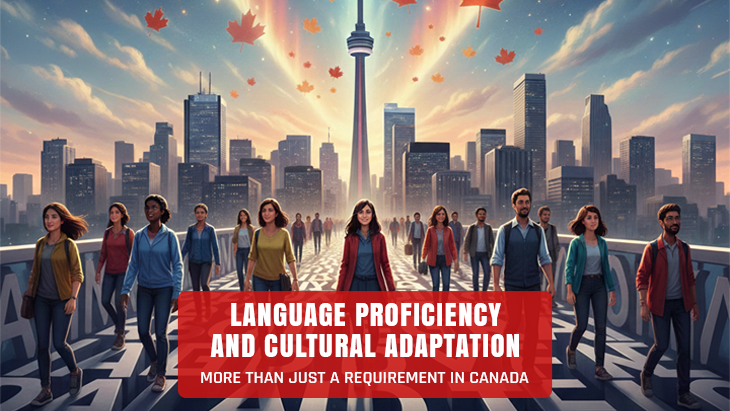Introduction
You must arrive in Canada to complete your application for a residence permit. However, with the border blocked to non-essential travel, many foreign people are unsure how they may complete their application for Canadian immigration while adhering to COVID travel limitations. Continue reading to discover more about your COVID-19 landing choices.
Landing in Canada
When you land in a new country, it can be a little overwhelming. There’s a lot of things to take care of, from setting up your life in the city to getting set up with all the necessities for living.
In this post, I’m going to tell you about my experiences when I moved from America to Canada and how I made it work for me. If you are moving from another country to Canada or already live here and want some advice on adjusting, then read on!
The first step to success!
The first step to success is landing in Canada during COVID-19
As everyone knows, Canada has many provinces and territories. Each province has its own laws. If you are an immigrant, you can apply for permanent residence in any province or territory of Canada. However, the process of immigrating to Canada is different from one province to another, so think carefully about where you want to settle down.
All nations with properly vaccinated citizens are welcome to enter Canada's borders:
As of September 7, 2021, fully vaccinated non-essential travelers from all countries will be able to enter Canada. Since August 9, 2021, fully vaccinated passengers from the United States, including U.S. citizens and permanent residents who presently dwell in the United States, have been able to access Canada.
These travel-related criteria are accompanied by certain modifications to Canada's COVID-19 border measures:
- Pre-arrival COVID-19 test: A pre-arrival COVID-19 molecular test is still required for all travelers (note: antigen testing, often known as "quick tests," are not approved). This test must be done within 72 hours after landing at the Canadian border for travelers crossing the land border with the United States. This test must be done within 72 hours before flight departure for air travelers.
- On-arrival COVID-19 test (Day One test): For fully vaccinated travelers, a new randomized testing procedure is being employed. Only fully vaccinated travelers who are randomly selected will be required to take a COVID-19 test upon arrival. Travelers who are unvaccinated or just partially vaccinated will still be required to complete an on-arrival test.
- End of a mandatory hotel stay for air travelers: Air travelers are no longer required to remain in a government-approved hotel while waiting for their COVID-19 test results upon arrival. This applies to all international travelers. Air travelers who are unvaccinated or just partially vaccinated may continue directly to their quarantine destination. The quarantine will not apply to fully vaccinated air travelers.
- Children under the age of 12: Children under the age of 12 who are traveling with fully vaccinated parents or caregivers are allowed to enter Canada and are free from quarantine procedures, but must adhere to certain restrictions, such as avoiding schools, camps, and daycares. Details on the criteria for children under the age of 12 may be found here.
During COVID-19, who is permitted to enter Canada?
You are able to enter Canada as of September 7, 2021, if you are completely vaccinated against COVID-19.
If you have not been vaccinated against COVID-19 or have only been partly vaccinated: You can only enter Canada if you qualify for one of the travel exceptions and follow Canada's specific travel criteria (including COVID-19 testing and mandatory 14-day quarantine). Even if they are not vaccinated, the aforementioned groups are allowed to legally cross the border into Canada:
Canadian citizens and legal residents; immediate relatives* of Canadian citizens and permanent residents who are traveling to Canada for non-discretionary reasons; enlarged family members** and long-term partners** of Canadian citizens and permanent residents (or their partners) who apply for written authorization from IRCC; immediate family members* of newcomers who apply for written authorization from IRCC; immediate family members* of foreign migrants who apply for written authorization from IRCC; immediate family members* of temporary residents who apply for written authorization from IRCC
Getting settled in your new home town!
If you are new to Canada and want to settle in your new home town. You should follow the following tips
- Moving to a new place can be exciting, but it can also be intimidating. You don’t know your way around, you might not know many people, and your social life is kind of on hold for the time being.
- The best way to get settled in a new place is to meet people. Use common interest sites like meetups and join groups that help you learn about the area and do things you wouldn’t normally do.
- If there aren’t any events in your area, set up your own! Make sure to include a lot of information about yourself so it makes it easier for others to talk to you or get in touch.
- The key to successfully settling in is getting out there and making friends! The best way to do this is by joining clubs and sports teams that interest you. Whether you’re into hiking or dancing or running or board games or whatever- join up! It will give you an instant community of like-minded people who are all looking for some good
The best apps to use in Canada!
There are two major things that you need to know when using apps in Canada.
1. Canadian users of the Apple App Store and Google Play must pay for apps and in-app purchases in Canadian dollars.
2. All prices displayed within apps such as Uber, Netflix, and Amazon should be converted to Canadian dollars before displaying on your device. The same guidelines apply to any payment information saved within an app (e.g., credit card or PayPal). It is best practice to store this information with a US billing address (such as ‘123 Fake Street, New York
Conclusion:
If you are planning a vacation to Vancouver, Canada, and have been in a country affected by the current measles outbreak, make sure that you’re fully vaccinated before arriving. For more information on what to expect when entering Canada from a country affected by the measles virus outbreak, please visit our website Canada Immigration Today. This is a very simple, easy-to-follow list that will help you with your travel planning. We hope that you find it helpful and don’t hesitate to reach out if you have any questions or concerns.













